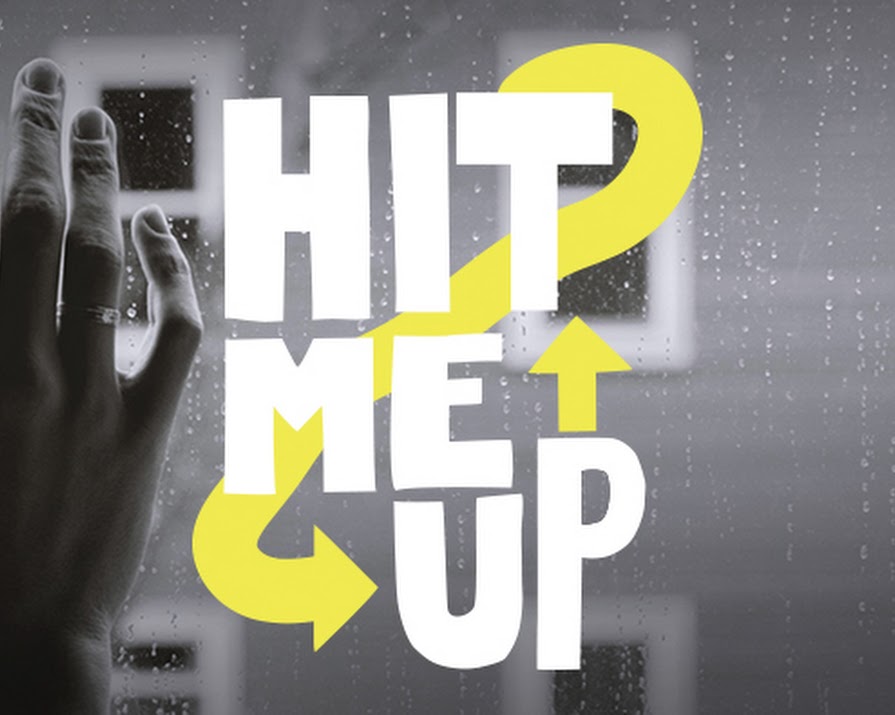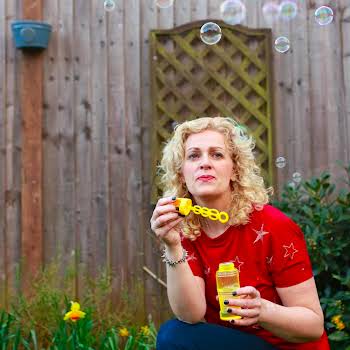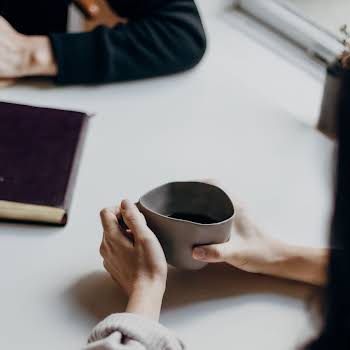By Rhona Mcauliffe
19th Sep 2018
19th Sep 2018
Our resident agony aunt Rhona McAuliffe offers advice to a reader who is worried about her friend.
Dear Rhona,
Recently at a house party I saw my friend’s boyfriend grab her roughly by the arm and hiss something into her ear when he thought no-one was looking. The look on his face and how rough he was scared me and I checked in with her later that night to see if she was ok. She was drunk and laughed it off and just said her boyfriend gets very jealous sometimes. A few weeks later, we went swimming together and I noticed bruises on her upper arms and thighs. I would have thought nothing of it if I hadn’t witnessed the party scene. I mentioned it again and she said that she has started to bruise for no reason and was going to go to the doctor.
If I believed her I wouldn’t be writing to you now.
I’m worried about her and want her to feel able to open up to me but don’t want to push her away. She’s been with her boyfriend about a year now and we hardly see them together. None of us really know him but he’s always seemed ok. He’s definitely got an edge and can be over-familiar and a bit lechy with us or slag her about things that are never funny but nothing really obviously bad. I’m trying not to speculate and get carried away with what could be going on but when it comes down to it, I’ve just got a really bad feeling about it. I’m not someone who buys into drama so really do not know what to do.
No Drama, Dublin.
The first thing you should know is that, according to stats compiled by the US National Domestic Violence Hotline, on average a woman will leave and come back to an abusive relationship seven times before she is permanently out. So, however this goes, you need to be patient, non-judgmental and understand that you will never be able to coax your friend out of there unless she has already made the decision to leave.
This means that to best serve your friend long-term, you are going to require Mr Miyagi levels of restraint and calm in the face of a situation that is completely out of your control. Accepting that fact now will help sustain your efforts and continued support. Her boyfriend’s hold on her relies on isolating her from her friends and loved ones to the point that people stop caring. Or she feels, and is told, that nobody cares about her, except him.
You are going to be the person who cares; the one who keeps showing up as she cancels one plan after the next.
You only have to listen to Hedley Thomas’s podcast, The Teacher’s Pet, which traces the highly suspicious disappearance of Lyn Dawson in Sydney, 1982, to know that inertia kills. Her husband at the time, Chris Dawson, is a prime suspect in her alleged murder. No body has been found but there are reliable witnesses who attest to the control he had over his wife, his habitual taunting of her and suspected violence. Her friends and family did nothing after she disappeared. They didn’t contact the police or pick holes in Lyn’s husband’s assertion that she had left her two cherished baby girls to run off and join a cult. They are tortured by their inaction now, questioning what they could have done to help.
I think you’ve witnessed enough to know that something’s not right here. Giving someone who’s demonstrated threatening, aggressive behaviour the benefit of the doubt helps no-one. Except him.
But proceeding on the basis that he is an abusive partner doesn’t mean that you talk about it. Perhaps confide in one person who’s not connected to the situation, one person you can trust, about your suspicions. Beyond that, assuming that he is dangerous will only alter how you engage with and support your friend.
Masters of manipulation
“Domestic abuse always accelerates, it never just goes away.”
There’s no single, hard and fast profile of a domestic abuser. There’s substantive evidence to suggest that they are misogynists and have subscribed or grown up with rigid gender stereotypes, as well as having experienced abuse as a child. The fascinating Netflix documentary, The Mask You Live In, also examines how ‘man up’ culture has moulded multiple generations of men who seek respect through violence. It’s well worth a watch.
Unmasking partners who abuse, however, is almost impossible. They are masters of manipulation, controlling through fear, humiliation and emotional torture. Your friend will be conflicted. She may love her partner but hate the violence. He may apologise profusely after each incident or simply deny it. She may feel confused, conditioned to believe that she is responsible for his behaviour and that he will change when she meets his expectations. Her self-esteem will be slowly eroded and she may not recognise their relationship as abusive.
Domestic abuse always accelerates, it never just goes away. She needs to get out now, when she can and he needs help to change his behaviour.
Post #metoo, the National Crime Victim Helpline in Ireland saw an increase of sexual assault and domestic violence related calls of 150%. There’s a palpable change in how we talk about abuse now and this will hopefully pave the way towards eradicating our culture of silence.
So, what can you do?
Be a quiet but strong, consistent presence in your friend’s life. Tell her that you are concerned about her and that violence and/or psychological control of a partner is a crime. Reassure her that you are there and will always be there if she needs to talk, a place to crash or ever finds herself in an emergency. Consider having a ‘code’ word or text to signify that she needs help. Always be non-judgmental and never slate her partner as she will feel compelled to defend him and may retreat from you. Never confront her partner or give him any impression that you suspect he is abusive.
Ensure your friend is aware of the excellent resources available to her. The Women’s Aid National Freephone number is: 1800 341 900. Their website is also a mine of useful and relevant information. As is Safe Ireland, which has 37 confidential domestic violence services across the country. Suggest that she can use your phone or computer to make these calls or enquiries and remind her to clear her browser history if she searches these services herself.
Although you shouldn’t ever press her to leave her partner, if she mentions that she is thinking about it, help her to formulate a plan and have any additional support – legal representation, for example – lined up. Know that the risk of violence peaks at the point when the victim leaves. Plan around this. Be practical and constructive always.
Finally, try to maintain her network, keeping her connected to her other life via nights out, weekends away or even work lunches. Build her confidence where you can, reaffirm what she is good at and let her know that she is valued.
And don’t forget to pat yourself on the back for being Friend of the Year 2018. You might even save someone’s life in the process.























